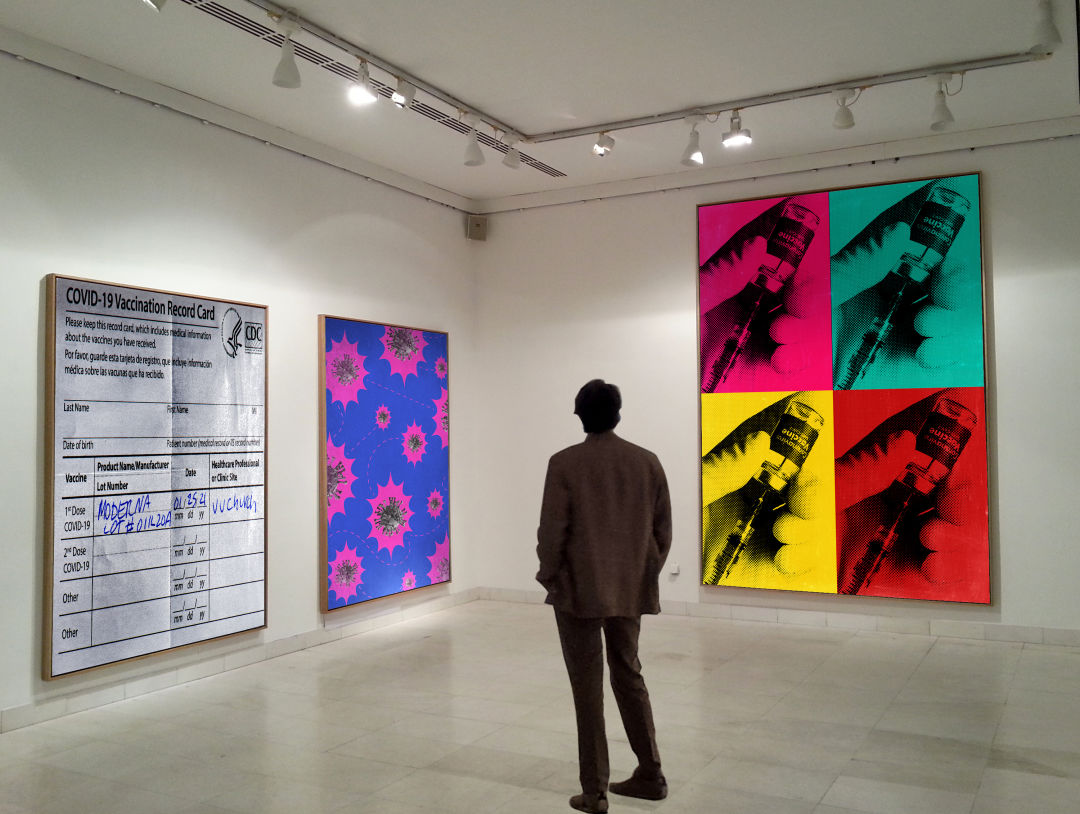Portland Arts Venues Consider Vaccine Mandates

To card or not to card?
Cue the halfhearted applause: mask mandates are back in Oregon. As the delta variant of the novel coronavirus drives COVID-19 case numbers up across the world, Oregon Gov. Kate Brown announced this week that the Beaver State will resume some of its earlier pandemic precautions. There are new ones, too: Brown announced a vaccine mandate for healthcare workers, with questions still swirling about similar mandates for other public employees.
The private sector is on a parallel, albeit spottier, course. In recent weeks, a number of Portland bars and restaurants started requiring proof of vaccination for indoor dining, and we've seen similar moves from indoor destinations in other states. But what of arts and entertainment venues, which require large numbers of people to gather indoors, side by side, sometimes for several hours at a time?
Some, like Mississippi Studios, have announced hard-and-fast vaccine mandates of their own. Patrons and ticket holders must produce proof of vaccination or a negative COVID test from the last 48 hours to enter the venue—if they have neither, they'll be rapid-tested at the door. Most venues, though, haven’t landed on anything this concrete. At least not yet.
"It's still a little too early to say," says Cynthia Fuhrman, managing director of Portland Center Stage. Starting in July, PCS mandated vaccines for members of its staff and board, and all of its volunteers, but given that its season doesn't begin until October, the company is waiting before committing to the murkier work of mandating vaccines for its audiences.
There's some motion in the background, though. PCS has prepared communication materials, should they instate a mandate, and they're keeping a close eye on vaccine mandates announced by Broadway theaters and regional companies in Washington, D.C. "If spread is still where it is now [in October], and if the mask mandates are still in place, that's telling us that county officials and state officials feel like it's still a very sensitive and potentially dangerous time, and we would be likely to implement [a vaccine mandate],” Fuhrman says.
Other companies are even less sure. Profile Theatre, which kicked off its latest season this month at the semi-outdoor venue Old Moody Stages, also has a vaccine mandate for its staff and a strict mask policy for its audiences, but artistic director Josh Hecht says the company does not currently require proof of vaccination from its audiences. (He also says they haven't ruled anything out, and it’s worth noting that Profile has even longer than PCS to land on a firm answer: the company's next show doesn't open until January 2022.)
"We're trying to balance, on the one hand, health access and equity issues: wanting to make sure we are being as inclusive for our audience as possible, especially for communities that are either vaccine reticent or have limited or reduced structural access to great healthcare, and on the other hand, the health and safety of our patrons,” Hecht says. “If you believe, as I do, that there's a moral imperative to get the vaccine, there's a part of us that believes we should be doing all we can to encourage people to get the vaccine. Part of that is by restricting access to certain kinds of fun activities—if that encourages people to get vaccinated, that's something to consider. I just think we haven't yet figured out how to balance those two concerns."
Robyn Williams, executive director of Portland'5 Center for the Arts, the Metro-run organization that operates the Arlene Schnitzer Concert Hall, Keller Auditorium, and Newmark, Brunish, and Winningstad Theaters, says all five venues will require masks, but there are no plans for a vaccine mandate unless performers or presenting companies request such at their shows. Echoing Hecht, she cites questions of equity. “While we know that vaccines are largely available, we know there are parts of our population where there is still considerable fear, including immigrant communities,” Williams says.
She and Hecht also hit on another thorny, delta-specific question: If infected vaccinated people are able to spread the delta variant as easily as infected unvaccinated people (something that's still not crystal clear), in the absence of on-site testing for every patron, isn’t a mask mandate more effective at stemming spread in these situations anyway? “The science looks like the masks are the thing,” Williams says, “which is why even if you’re vaccinated, you’re back in a mask.” Hecht agrees: "Perhaps masking is the more effective tool in our arsenal."
Movie theaters, which also rely on close-quarters audiences (but mostly eliminate unmasked performers from the equation) are similarly unsure. "We are weighing all the options right now," says Doug Whyte, executive director of the Hollywood Theatre. Whyte says he's looking to the National Association of Theater Owners, which may issue guidance on vaccine mandates after movie theaters in New York rolled out mandates their own, for information on what implementing such a rule might look like.
For her part, Lani Jo Leigh, a co-owner of the Clinton Street Theater, says she won’t institute a vaccine mandate unless the government requires it. “I believe vaccination is a personal choice. I chose to be vaccinated, but there are many reasons to choose not to vaccinate,” she says. “Masking, however, is something we can all do to help each other stay safe, and I will not hesitate to reinstate a masking policy as soon as requested by our city, county, or state officials.” (She was reached for comment shortly before Gov. Brown announced the new statewide mandate.)
In a statement to Portland Monthly, the Portland Art Museum emphasized its commitment to recommendations from the Oregon Health Authority, Multnomah County, and the Centers for Disease Control, requiring masks but not proof of vaccination from its patrons, along with an expectation that “visitors conduct themselves with respect for the health and safety of others.”
Amid all the uncertainty, arts orgs are keeping in close contact. The artistic directors of many Portland theater companies have been holding monthly Zoom check-ins since the pandemic began, and Hecht says last week’s session was completely dedicated to discussions about vaccine mandates. Fuhrman, from PCS, says there’s a strong chance that several companies in town form some sort of coalition, a la Broadway or D.C., to leverage their collective constituencies to “help tackle this pandemic to the ground.”
There are discussions underway about how arts orgs might help distribute reliable vaccine information and increase access to vaccines and testing. Hecht says he would feel more comfortable mandating vaccines if his company was doing something to actively aid people in securing vaccinations. Many orgs are also braced for blowback, though most point to the fact that Multnomah County's vaccination rates are higher than the national average as evidence that, should they instate vaccine mandates, they'd be more likely to fly here than in many other parts of the country.
“We’re all really eager to get back onstage, and really eager to have audiences, and every indication we have from our audience is that they’re eager to come back,” Fuhrman says. “So how do we do that, but do that in a way that makes sure we’re not just prolonging the crisis? I think the last thing any of us wants to do is fling open our doors again, and in fact then exacerbate the problem, and extend the pandemic.”




